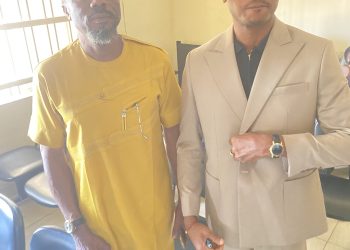By Nkechi Eze
The Economic and Financial Crimes Commission (EFCC) has called on Nigerian students to resist the temptation of using the internet for fraudulent purposes, warning that such misuse could derail their future and attract severe legal consequences.
This charge was delivered on Friday, June 20, 2025, during an interactive session with students from the Department of International Relations, Obafemi Awolowo University (OAU), Ile-Ife, Osun State. The students were on an educational field trip to the Lagos Zonal Directorate 1 of the EFCC.
According to a statement by EFCC spokesperson Dele Oyewale, the Zonal Director, CE Michael Nzekwe, through the Head of Public Affairs Directorate, Deputy Commander of the EFCC (DCE) Ayo Oyewole, urged the visiting students to use their time online productively by developing creative and innovative ideas that contribute to national growth.
“As youths, you must begin to look inward and challenge your creative abilities to bring up ideas, perspectives, and drives that can grow the economy,” Nzekwe said.
He emphasized the importance of integrity and accountability, especially among young Nigerians, who he described as key stakeholders in shaping the nation’s future. He also encouraged the students to act as ambassadors of anti-corruption by publicly denouncing internet fraud and other forms of cybercrime.
“You have a role to play in the anti-graft war,” he added. “By staying away from internet fraud and corruption, you not only protect your future but also contribute meaningfully to the fight against economic and financial crimes.”
Responding on behalf of the students, Dr. Ibukun David, a lecturer in the Department of International Relations who led the delegation, thanked the EFCC for the warm reception and insightful engagement.
He described the visit as an eye-opener for the students and pledged that they would disseminate the knowledge gained during the session to their peers and the broader academic community.
The visit underscores the EFCC’s ongoing commitment to youth education and engagement as a critical pillar in its preventive strategy against economic and financial crimes.















